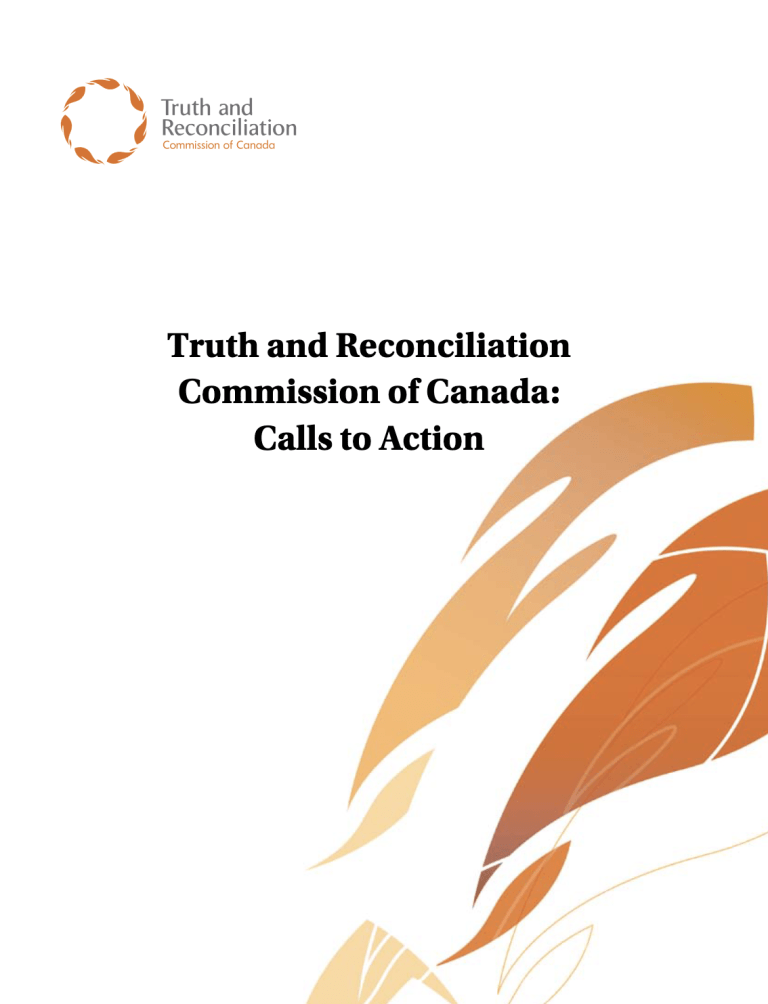3 search results
for
Private sector
Legacy
Justice
Recommendation 27: We call upon the Federation of Law Societies of Canada to ensure that lawyers receive appropriate cultural competency training, which includes the history and legacy of residential schools, the United Nations Declaration on the Rights of Indigenous Peoples, Treaties and Aboriginal rights, Indigenous law, and Aboriginal–Crown relations. This will require skills-based training in intercultural competency, conflict resolution, human rights, and anti-racism.-
Category and theme:
Groups affected:
Reconciliation
National Council for Reconciliation
Recommendation 53: We call upon the Parliament of Canada, in consultation and collaboration with Aboriginal peoples, to enact legislation to establish a National Council for Reconciliation. The legislation would establish the council as an independent, national, oversight body with membership jointly appointed by the Government of Canada and national Aboriginal organizations, and consisting of Aboriginal and non-Aboriginal members. Its mandate would include, but not be limited to, the following:- Monitor, evaluate, and report annually to Parliament and the people of Canada on the Government of Canada’s post-apology progress on reconciliation to ensure that government accountability for reconciling the relationship between Aboriginal peoples and the Crown is maintained in the coming years.
- Monitor, evaluate, and report to Parliament and the people of Canada on reconciliation progress across all levels and sectors of Canadian society, including the implementation of the Truth and Reconciliation Commission of Canada’s Calls to Action.
- Develop and implement a multi-year National Action Plan for Reconciliation, which includes research and policy development, public education programs, and resources.
- Promote public dialogue, public/private partnerships, and public initiatives for reconciliation.
-
Category and theme:
Audience:
Groups affected:
Reconciliation
Business and reconciliation
Recommendation 92: We call upon the corporate sector in Canada to adopt the United Nations Declaration on the Rights of Indigenous Peoples as a reconciliation framework and to apply its principles, norms, and standards to corporate policy and core operational activities involving Indigenous peoples and their lands and resources. This would include, but not be limited to, the following:- Commit to meaningful consultation, building respectful relationships, and obtaining the free, prior, and informed consent of Indigenous peoples before proceeding with economic development projects.
- Ensure that Aboriginal peoples have equitable access to jobs, training, and education opportunities in the corporate sector, and that Aboriginal communities gain long-term sustainable benefits from economic development projects.
- Provide education for management and staff on the history of Aboriginal peoples, including the history and legacy of residential schools, the United Nations Declaration on the Rights of Indigenous Peoples, Treaties and Aboriginal rights, Indigenous law, and Aboriginal–Crown relations. This will require skills based training in intercultural competency, conflict resolution, human rights, and anti-racism.
-
Category and theme:
Audience:
Groups affected:
